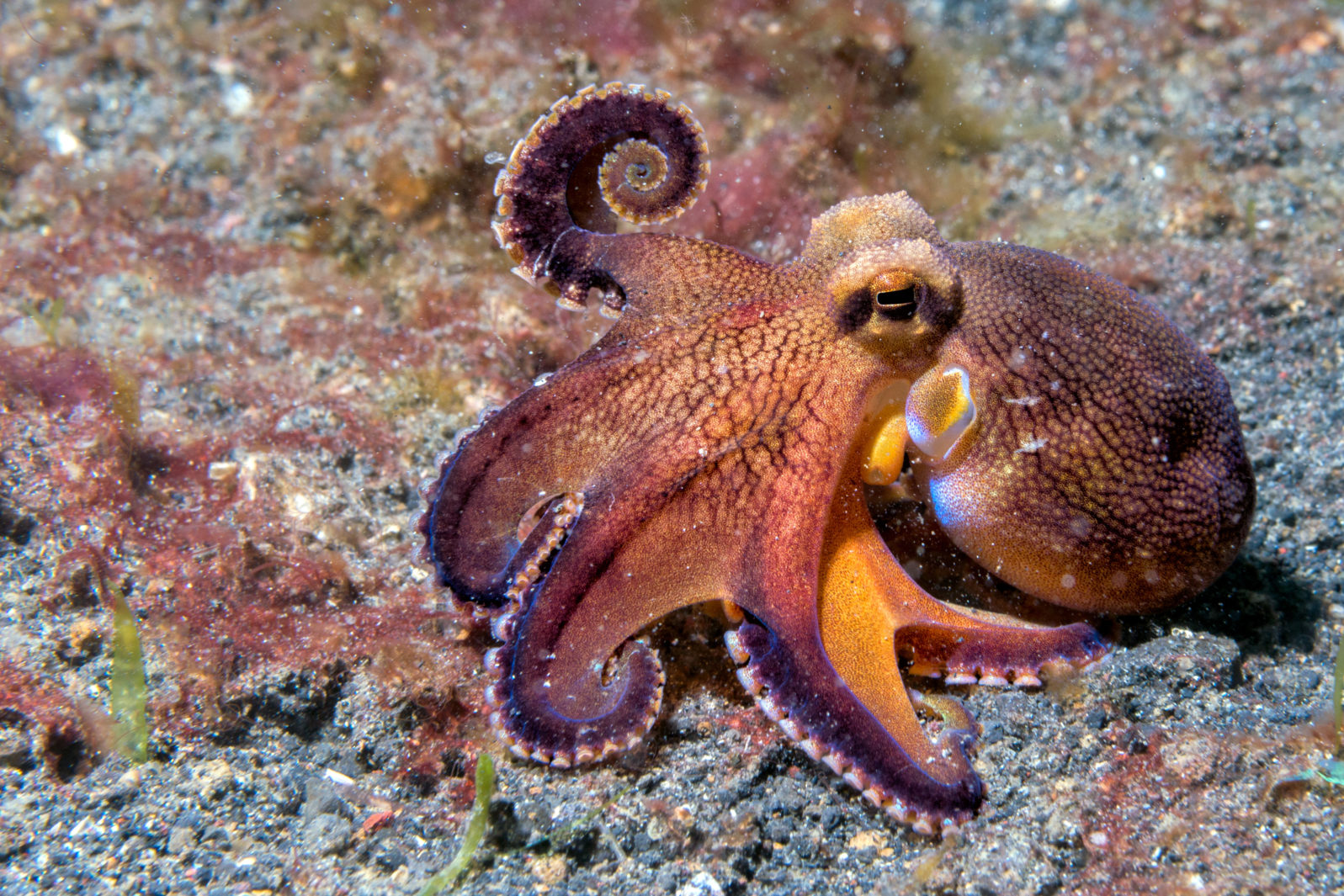Jumping Genes … A New Clue to Octopus Intelligence?
Despite being very different, the human brain and the octopus brain share the same sort of jumping genesThe fact that octopuses are unusually intelligent (like mammals) — even though they are solitary invertebrates — means that they now receive some protection against cruelty. Protection that no one bothers about for, say, clams and oysters.

But the science puzzle remains. How did octopuses and some of their close kin among the cephalopods get so smart? Theories about how mammals and birds got to be smart may not work here.
A recent paper adds a little more information to the controversy. Studying the common octopus and the California octopus, researchers found that the same “jumping genes” are active in the octopus brain as in the human one — even though the two types of brain are very different. Jumping genes, of which there are many types, can move from one place in the genome to another:
Among these mobile elements, the most relevant are those belonging to the so-called LINE (Long Interspersed Nuclear Elements) family, found in a hundred copies in the human genome and still potentially active. It has been traditionally thought that LINEs’ activity was just a vestige of the past, a remnant of the evolutionary processes that involved these mobile elements, but in recent years new evidence emerged showing that their activity is finely regulated in the brain. There are many scientists who believe that LINE transposons are associated with cognitive abilities such as learning and memory: they are particularly active in the hippocampus, the most important structure of our brain for the neural control of learning processes.
International School of Advanced Studies (SISSA), “Octopus brain and human brain share the same ‘jumping genes’” at Phys.org (June 24, 2022) The paper is open access.
These sorts of genes used to be called “junk DNA” but in recent years, many of them have turned out to make a good deal of difference:
Focusing on the transposons still capable of copy-and-paste, the researchers identified an element of the LINE family in parts of the brain crucial for the cognitive abilities of these animals…
“The discovery of an element of the LINE family, active in the brain of the two octopuses species, is very significant because it adds support to the idea that these elements have a specific function that goes beyond copy-and-paste,” explains Remo Sanges, director of the Computational Genomics laboratory at SISSA, who started working at this project when he was a researcher at Stazione Zoologica Anton Dohrn of Naples. The study, published in BMC Biology, was carried out by an international team with more than twenty researchers from all over the world.
“I literally jumped on the chair when, under the microscope, I saw a very strong signal of activity of this element in the vertical lobe, the structure of the brain which in the octopus is the seat of learning and cognitive abilities, just like the hippocampus in humans,” tells Giovanna Ponte from Stazione Zoologica Anton Dohrn.
International School of Advanced Studies (SISSA), “Octopus brain and human brain share the same ‘jumping genes’” at Phys.org (June 24, 2022) The paper is open access.
Researchers call this type of discovery convergent evolution: Two species that are not remotely similar or closely related have the same toolkit. In both cases, humans and octopuses, the history is unknown.
And there’s so much else that we need to be sure of. For example, if humans and octopuses share jumping genes in the brain, is that also true of chimpanzees, dogs, whales, dolphins, and ravens? There could very well be a general connection between such genes and problem-solving abilities. Then the next question will be, how does it work?
You may also wish to read: If octopuses are really smart, should we eat them? Proposals to farm octopuses are meeting with opposition on grounds of animal cruelty. Underlying the ethical issues is the admitted fact that the evolution of animal intelligence, however it happened, is nowhere near as tidy as we once believed.
